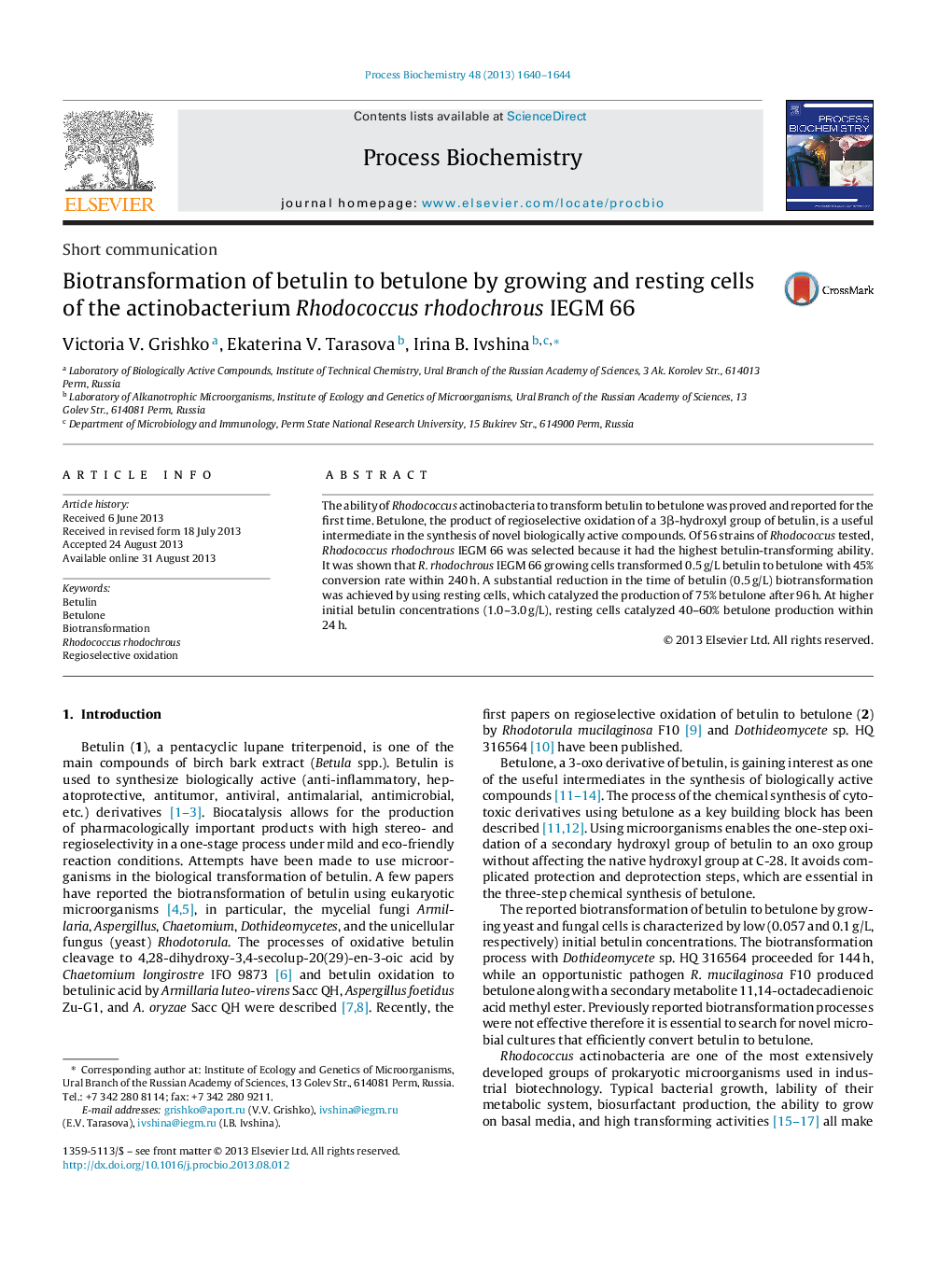| Article ID | Journal | Published Year | Pages | File Type |
|---|---|---|---|---|
| 34595 | Process Biochemistry | 2013 | 5 Pages |
•The ability of Rhodococcus actionobacteria to transform betulin to betulone was proved.•R. rhodochrous IEGM 66 exhibited the highest betulin-transforming ability.•Growing cells transformed betulin to betulone with 45% conversion rate within 240 h.•Resting cells catalyzed 40–60% betulone production within 24 h.
The ability of Rhodococcus actinobacteria to transform betulin to betulone was proved and reported for the first time. Betulone, the product of regioselective oxidation of a 3β-hydroxyl group of betulin, is a useful intermediate in the synthesis of novel biologically active compounds. Of 56 strains of Rhodococcus tested, Rhodococcus rhodochrous IEGM 66 was selected because it had the highest betulin-transforming ability. It was shown that R. rhodochrous IEGM 66 growing cells transformed 0.5 g/L betulin to betulone with 45% conversion rate within 240 h. A substantial reduction in the time of betulin (0.5 g/L) biotransformation was achieved by using resting cells, which catalyzed the production of 75% betulone after 96 h. At higher initial betulin concentrations (1.0–3.0 g/L), resting cells catalyzed 40–60% betulone production within 24 h.
